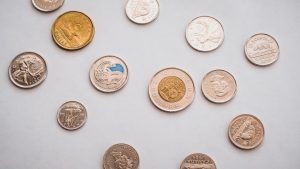As a forex trader, it is important to understand the tax implications of your trading activities. Taxes are an unavoidable part of life, and forex trading is no exception. However, there are ways to minimize your tax liability and maximize your profits.
1. Keep Accurate Records
The first step in avoiding tax when trading forex is to keep accurate records of all your trading activities. This includes all trades, profits, and losses. You should also keep records of any expenses related to your trading, such as trading software or subscriptions to trading services.
Keeping accurate records will help you to determine your tax liability and ensure that you are paying the correct amount of tax. It will also make it easier to file your tax returns and avoid any penalties for incorrect or incomplete information.
2. Understand Your Tax Liability
The tax laws relating to forex trading can be complex, and it is important to understand your tax liability before you start trading. In general, profits from forex trading are treated as capital gains, and are subject to capital gains tax. This tax is calculated on the difference between the purchase price and the sale price of the currency.
The tax rate for capital gains varies depending on your income and the length of time you hold the asset. Short-term capital gains, which are gains on assets held for less than a year, are taxed at your ordinary income tax rate. Long-term capital gains, which are gains on assets held for more than a year, are taxed at a lower rate.
3. Take Advantage of Tax Deductions
One way to minimize your tax liability when trading forex is to take advantage of tax deductions. If you are trading forex as a business, you may be able to deduct expenses related to your trading activities, such as trading software, internet and phone bills, and travel expenses.
To be eligible for these deductions, you must be able to demonstrate that your forex trading is a legitimate business activity, and that you are actively engaged in the business of trading forex.
4. Consider Trading Through a Company
Another way to minimize your tax liability when trading forex is to trade through a company. If you are trading forex as an individual, you will be subject to personal income tax on your trading profits. However, if you trade through a company, the profits will be subject to corporate tax, which is generally lower than personal income tax rates.
Trading through a company can also provide other benefits, such as limited liability protection and the ability to raise capital through the sale of shares.
5. Consult a Tax Professional
Finally, if you are serious about minimizing your tax liability when trading forex, it is important to consult a tax professional. A tax professional can provide you with advice on how to structure your trading activities to minimize your tax liability, and can help you to navigate the complex tax laws relating to forex trading.
In conclusion, forex trading can be a profitable activity, but it is important to understand the tax implications of your trading activities. By keeping accurate records, understanding your tax liability, taking advantage of tax deductions, considering trading through a company, and consulting a tax professional, you can minimize your tax liability and maximize your profits.






